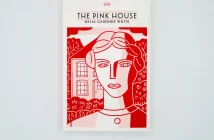I planned to go in the attic today, even though it’s about ten degrees outside, because I wanted to go through old boxes filled with journals and diaries from my teen years as well as letters my parents saved from my trips to Europe. An afternoon spent hiking down memory lane.
Unfortunately, it was a short trip.
I thought I was so smart putting on my fancy leather coat and a red hat I’ve never worn because the attic is so cold. There are a thousand boxes up there since we still haven’t had the yard sale we’ve sworn to have for the last several years. I banged my knee, hard, on the step then I couldn’t find any of the journals and letters I’d been remembering.
Of course, I found the tax files easily, but as for my past: slim pickings, at least on this go. I did find a box with a weekly planner from 1997 when I worked in media relations at Virginia Commonwealth University. The year before my mother died. The year before I married my husband and gave birth to my daughter. Also in the box were letters from an old friend, a writer who had been my mentor, the columnist and author Donald Morris; his daughter had been kind enough to mail back my letter collection going back ten years. I found short stories; notes from an unpublished novel, Lost with Ghosts; a copy of a guidebook I wrote on Charleston; and an invitation to my, um, first wedding.
God. What a memory box. My heirs may be quite disappointed.
What I can say is this: I had a feeling I was a writer at 15, but didn’t really embrace it ‘til I was 24 after the first piece I wrote about a round-the-world trip was published. I taught myself how to do journalism by imitating the style in Vanity Fair and The New York Times; on the side I scribbled short stories. I sold the articles quite easily. Fiction eluded me.
In this same box I found about a dozen short stories written over 20 years ago. I like the titles. “Misery Needs a Victim.” “He Hungered for What They Had. “Obscure Love Lies on the Farthest of Shores.” “Mere Love is Beautiful Indeed.” I remember submitting these to journals like The Georgia Review and Agni, all rejected.
“Misery Needs a Victim” is about a fraying relationship, a little too autobiographical for comfort. First sentence: “Karen knew she had lousy taste in men, but she’d never done anything about it.” For the next 15 typed double spaced pages Karen and Stephen hash out the highs and lows in a relationship that is beyond repair; halfway through the story some redneck, Rick, trespasses and steals pecans from one of Karen’s trees. (In Savannah many of us had bountiful pecan trees. People were always stealing my nuts.) Karen has it out with Rick over the pecans, then her boyfriend shows up and calms Rick, and smokes a cigarette with him which makes Karen mad. Hence, Stephen turns on her and says, “Honey, you really need to get off your high horse. Just because people don’t come from the same background as you doesn’t mean they’re all bad.”
A few days later, Stephen is getting drunk in a bar, sure Karen is about to ask him to move out. He bumps into Rick who offers advice on women, even though he has a lousy track record; the two of them cook up the idea that Rick will go to the apartment and scare Karen a little bit and Stephen will arrive just in time to save the day. So, Karen has a confrontation with Rick and she threatens to call the police. Last line: “Get out of here or I’m calling the police, you piece of redneck trash,” she said, barely forcing a sneer before his hand rose high and fell to the earth like a confident hawk finding its prey.”
I can’t imagine why The Georgia Review and Agni didn’t publish this. I mean really.
“Mere Love is Beautiful Indeed” is about a longtime married couple, Harrison and Pam DeRenne, somewhere in their thirties, who head off to a summer party in Savannah. I’m pretty good at description so I managed to capture the historic home where the party takes place along with the usual images of the fashionable set acting silly and drinking too much.
Out of boredom, Harrison and Pam get drunk at the party and end up in a strip club, hoo-wee, living on the edge. And really shaking things up when they invite one of the strippers home with them. Things get out of hand, and unlike the last story where someone got bonked on the head (no, that wasn’t me), this one ends with the wife hearing, sadly, the noise one could hear when one leaves a stripper in a husband’s bedroom overnight.
Sorry to disappoint, but this short story is not autobiographical. I don’t know what I was thinking to write that the stripper danced to “Do You Know the Way to San Jose” except admittedly the song does have a good bouncy beat.
Another track in “Mere Love is Beautiful Indeed”: Back at the party, there is a guest who has battled cancer. She’s sitting with her friends. On the road back to health. Bald head hidden by a black and green scarf. I wrote:
Margaret Kearney had learned finally, the painful yet invaluable lesson that once you’ve had the experience of almost dying, you begin to appreciate everything you never had time for. The feel of material on a sofa; the tremolo of a scarlet cardinal perched on a pink-red crape myrtle tree out back your kitchen door; the chiaroscuro a street lamp makes in a corner of your bedroom as you listen to the secret music of the night; the hug of a spouse while you cook dinner; a child’s tear or question. All so quotidian until you’ve almost lost them for good. All echoing like a benediction now that Margaret Kearney had survived.
Not bad for a young writer finding her way.



